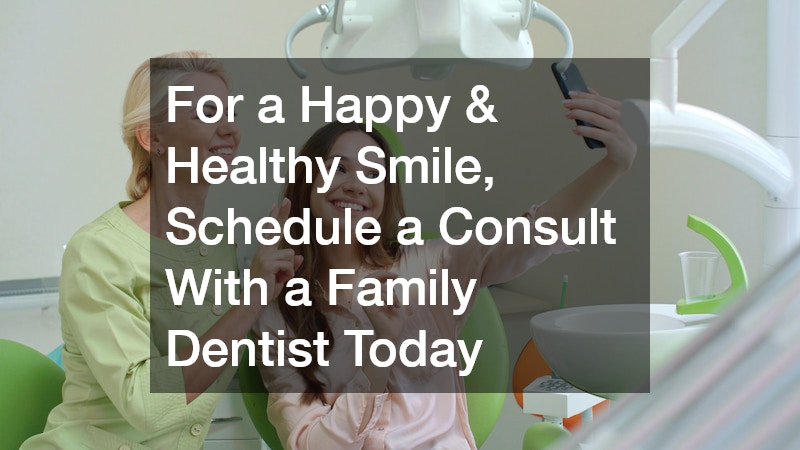
Visiting the dentist regularly is crucial for maintaining oral health, but have you ever wondered how to make those visits more rewarding for both you and your family dentist? In this article, we provide tips to make every dental visit a positive experience. By adopting certain practices and fostering effective communication, you can create a visit environment that is as enjoyable for the dentist as it is beneficial for you.
How Often Should You Visit the Dentist?
General Recommendations for Dental Visits
It is generally recommended that individuals visit their dentist every six months for routine check-ups. These biannual visits allow for professional cleanings and early detection of potential issues that may not be visible to the untrained eye.
Regular visits not only benefit your oral health but also reassure your dentist that you are committed to maintaining a healthy smile.
Factors Influencing Visit Frequency
While the standard recommendation is two visits per year, certain factors might necessitate more frequent appointments. Individuals with pre-existing conditions like gum disease or a history of cavities may require quarterly visits to monitor their oral health closely. Additionally, lifestyle choices such as smoking or a high sugar diet can impact the frequency of visits needed to maintain optimal dental health.
Signs You Need to See Your Dentist Sooner
If you experience signs such as persistent toothache, bleeding gums, or unusual sensitivity, it’s wise to schedule an appointment sooner than scheduled. Ignoring these symptoms can lead to more severe issues that may require invasive procedures. Early detection and treatment of dental problems not only benefits your health but also demonstrates your commitment to your dentist’s guidance.
What Dental Habits Can Make Your Dentist Happy?
Brushing and Flossing Techniques
Proper brushing and flossing techniques are fundamental habits that greatly please your dentist. Brushing twice a day using the correct technique ensures plaque removal while minimizing enamel wear. Flossing at least once daily is crucial for cleaning areas that a toothbrush cannot reach, helping prevent gum disease and cavities.
The Importance of a Balanced Diet
A balanced diet rich in vitamins and minerals supports strong teeth and gums, delighting your dentist. Foods high in calcium, such as dairy products, and those rich in vitamin C, like fruits and vegetables, promote oral health. Avoiding excessive sugar intake helps prevent cavities, reinforcing your commitment to good oral hygiene and pleasing your dentist.
Hydration and Its Impact on Oral Health
Proper hydration is essential for maintaining oral health and can contribute to a happy dentist. Drinking water regularly helps wash away food particles and bacteria, reducing the risk of tooth decay. Saliva production, enhanced by regular hydration, also neutralizes acids in the mouth, protecting enamel and supporting overall dental well-being.
How Can You Prepare for a Dental Appointment?
Gathering and Sharing Dental History
Compiling a comprehensive dental history before your appointment helps your dentist provide personalized care. Inform your dentist about any changes in your health, including medications and recent dental concerns. Providing a detailed history allows for targeted advice and interventions, making the appointment more effective and rewarding for both parties.
Pre-appointment Oral Hygiene Practices
Engaging in diligent oral hygiene practices before your appointment ensures a smooth visit. Brush and floss thoroughly before heading to the dentist, as this prepares your teeth for examination and cleaning. Your commitment to regular oral hygiene will be evident, reducing the need for extensive cleaning and allowing the dentist to focus on other aspects of your oral health.
Addressing Dental Anxiety
Open communication about dental anxiety can enhance the appointment experience for both you and the dentist. Discuss your concerns beforehand, allowing the dentist to tailor the environment and treatment approach to ease your fears. By addressing anxiety openly, both you and the dentist can work towards a comfortable and productive visit. Dental anxiety is a common issue that can impact the effectiveness of the visit, so never hesitate to speak up.
What Questions Should You Ask Your Dentist?
Oral Hygiene and Health Concerns
Asking your dentist questions about oral hygiene and health concerns shows your proactive approach to maintaining dental health. Inquire about the latest recommendations for brushing and flossing techniques, as these can change based on the latest research. Additionally, discussing any specific concerns you have demonstrates to your dentist that you are engaged and interested in following professional advice.
Treatment Options and Alternatives
Discussing treatment options and alternatives helps you make informed decisions and reassures your dentist of your commitment to effective care. Understanding the reasons behind each recommendation allows for a collaborative decision-making process. Your curiosity and interest in treatment details reflect a respectful relationship with your dentist, fostering trust and satisfaction.
Long-term Dental Care Plans
Engaging your dentist in discussions about long-term dental care plans indicates your foresight and dedication to oral health. Talk about strategies for maintaining healthy teeth and gums beyond routine appointments. By expressing interest in long-term care, you make it clear to your dentist that you are taking an active role in preserving your dental well-being.




